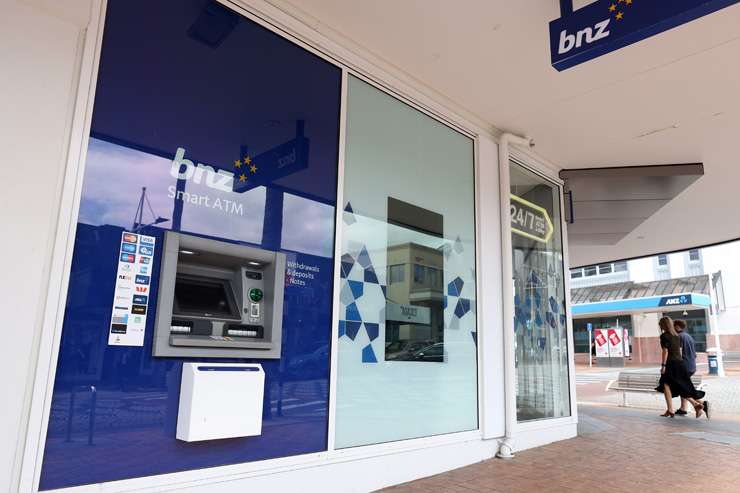When the bank says “no” to a mortgage it can be devastating. A first-home buyer’s dreams may be dashed. Or worse, some people sign sale and purchase agreements then find the bank refuses the loan. That can mean losing the deposit.
“No” doesn’t need to be “no” if you know where to turn.
Aseem Agarwal, head of mortgage at Global Financial Services, says a “no” from the bank on a mortgage application will be as a result of one or more of the following factors:
● Insufficient income
Start your property search
● Expenses too high
● Low deposit / loan to value ratio (LVR)
● Account conduct
● Credit score
● Age
● Residency
“It could be any of those criteria,” Agarwal says. That’s when buyers and investors sometimes approach a mortgage adviser who can negotiate on the borrower’s behalf.
Banks have some leeway and an adviser can sometimes argue the case on behalf of a borrower, who may in fact be a good bet, despite appearing otherwise on the surface or being a square peg in a round hole.
“We do ask the bank the rationale behind [the decline], which banks are happy to share in confidence with the brokers, most often,” Agarwal says. “Then we will sit with the customer and tell them why the outcome has not been successful this time.”
One of the main reasons banks say “no” is a poor credit score. Three credit bureaus Equifax, Centrix, and Illion hold records on most adult New Zealanders. The information contained in them includes identity, aliases, all credit applications from the past five years, even if no money was borrowed. That includes power, water and mobile phone accounts because they provide the service before the account holder pays. Other information used to create credit scores includes defaults, court judgments, full bankruptcies, and no asset procedure.
Most defaults are due to not paying bills on time. But credit scores are also based on positive information such as now paying on time including on-time payments, which enables buyers to resurrect their credit score reasonably quickly.
If the borrower is turned down for pre-approval and is only at the house-hunting stage, there is time to rectify the situation over the next three to six months, Agarwal says. “We will propose how the customer is going to rectify the shortcomings in terms of their default or account conduct.

Banks may reassess your application if you can show you have a good financial record. Photo / Fiona Goodall
“Let’s say someone had missed a couple of payments and the bank said that [it] wanted to see a six-month history where all the payments are in order and all the credit card limits [aren’t exceeded].
“You need to show to the bank that you can actually manage your financial affairs responsibly. And if your current position doesn’t give that confidence to the bank, then no matter how much income you have or how good your deposit is, the bank will not approve your loan.”
Sometimes it’s a relatively easy fix such as automatic payments and direct debits not being aligned with a borrower’s payday, causing defaults, Agarwal says.
“We will then sit with the customer and work out a plan on how they are going to rectify those shortcomings. We will look at why those payments were being missed. Was it because they were not going out at the same time when the salary was coming in? Was it because they have too many accounts? Would they be better off consolidating all their income and expenses in a single account?
“Once we work out what will be the best practical approach to rectify that shortcoming, then we will tell them that this is the framework that they need to put in place for the next six months. We will review their progress on that framework every two to three months to make sure they are on the right track.
“After six months [if] the client has shown enough evidence to the bank that they have mended their ways, then we will present that position either to the same bank or another bank, and tell them their story of where the customer has now become [financially] responsible.”
Sometimes it’s relatively simple such as the borrower having too many credit cards or other lines of credit open. Reducing the number or the limits can be all that is needed, says Agarwal.

Too many credit cards can sink a mortgage application. Photo / Supplied
“The other thing they can do to make themselves bankable is not to further deteriorate their position. Don’t go away and take on extra debt, such as car loans, or credit cards.”
Or it may be that the person has changed jobs, is in a trial period, and because the line of work is new, the bank is not comfortable lending.
“In that case, all the customer needs to do is continue in their current role with the current company. Once their trial operation period is over, they can get a letter from the employer saying they are now a permanent employee. Now the bank will have confidence that the income that they are showing from the current work to service the loan will continue to come in the foreseeable future. Therefore the bank will be able to give the loan to the customer.”
Sometimes it’s best to go to a new bank that will not be swayed by the previous application. “[The new bank] will not be influenced by the previous application. That way the customer will be able to get the outcome from the bank.” Advisers have a better knowledge of how to phrase a borrower’s situation in a way the bank understands than the individual may be.
The Credit Contracts and Consumer Finance Act (CCCFA) is one reason why home buyers can be declined by banks. The law is designed to curb irresponsible lending, mainly by loan sharks.
When the CCCFA regulations were updated on December 1 last year many borrowers who would have qualified for loans previously were turned down by banks.
Anecdotally some banks have found they like the tighter rules and are still assessing buyers’ affordability on very tight criteria.
Sometimes the decision to accept or decline a loan comes down to individual assessors at banks, says Jonathan Battersby, mortgage adviser at Peak Financial Services. Some are as picky as they were before the CCCFA regulations were loosened on July 1. Some aren’t.
Battersby sees mortgage deals fly through the process and be approved. In other cases Battersby may have written lengthy explanations of the clients’ situation and the loan is declined outright.
When advisers can’t get a mortgage through the bank for their clients, they often turn to non-bank lenders such as Resimac, Pepper Money, Avanti Finance, Liberty Financial and Bluestone.
Typically they will charge 1%-2% more, says Agarwal, but the opportunity cost may be worth it for the client. “This requires a conversation with the customer. If you are not in a position to wait and you want the outcome right away, and there is a suitable non-bank lender that’s happy to write that loan we can take them to a non-bank lender,” says Agarwal.





































































